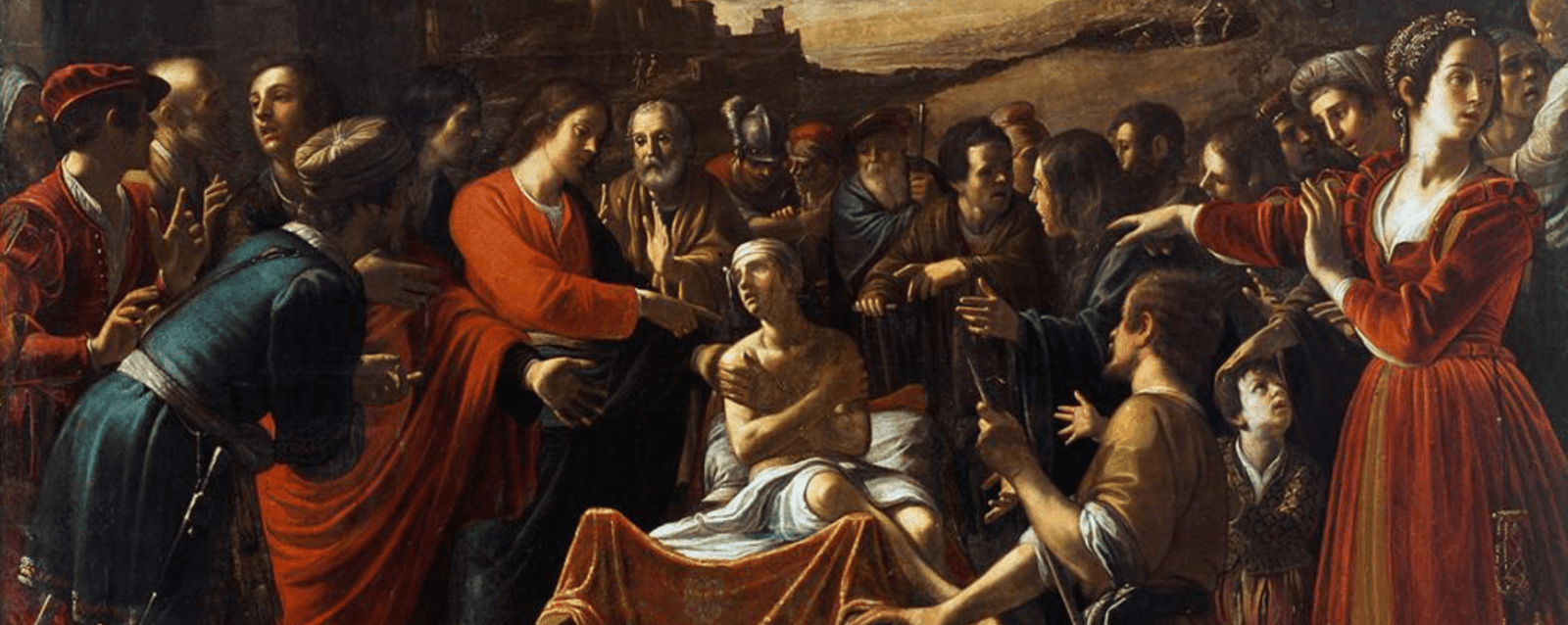The Weeping of the Widow

We have just heard the story of the widow of Nain, who wept by the bier of her dead son before he was resurrected by our Lord Jesus Christ. Often when I preach on a Gospel passage, I begin by reminding us to look for ourselves in the story being recounted in Sacred Scripture. And I think that there are exceedingly few among us who cannot identify with the widow of Nain, or with the people of the city who mourned with her at the bier of her son. There are few among us whose lives have remain untouched by tragedy and unmarred by death.
We live in an age of action. We are not a generation of contemplatives, but rather one which, with burning urgency and insistence, demands above all to know “what to do.”
But what can mankind do in the face of death? What kind of solution can we possibly hope for? Although without doubt humanity has (especially in the past several centuries) achieved an astounding degree of success in nearly every field and endeavor imaginable, we are nevertheless invariably left with an insurmountable difficulty, which has been succinctly expressed by Archimandrite Vasileios of Iveron: “What am I supposed to do with a success that does not conquer death?”
The absolute and utter helplessness of the widow of Nain is in fact the common condition of humanity. All too often we are tempted to believe that we can solve our own problems, with our own strength and our own knowledge and our own cleverness. But there is nothing whatsoever that we can do to overcome the death that has been brought about through sin.
We encounter such death everywhere around us: in our society, in our soul, and even — grievous though it is to say — in certain of the more human elements of the Holy Orthodox Church. And I want to be totally clear about two things. First: that there is absolutely nothing that we can do about any of it — other than to weep and to pray. And second: that in Jesus Christ — and only in Jesus Christ — “Death is swallowed up in victory.”
Consider the example of the Holy Fathers of the Seventh Ecumenical Council, whose memory we celebrate today. They were faced with grievous Church divisions, with soul-destroying heresy, and with a powerful empire which was, without any exaggeration, violently hostile to the true faith. In short, circumstances in those days had already reached such a pass as that to which we are rapidly heading today. Many there were then who cried out with St. Paul: “who shall deliver me from the body of this death?”
And how did the Holy Fathers of the Seventh Ecumenical Council answer? With brilliant stratagems, eloquent speeches, and resounding denunciations of error and impiety? Well, as a matter of fact, yes they did. But here is the vitally important part: it was not their voice that spoke, but rather it was the Holy Spirit who spoke through them.
All that the Holy Fathers themselves had done was to weep and, with love and pain of heart, to beg the Lord Jesus Christ to once again have compassion on His servants, to once again pass by the funeral procession of our sin and our folly, and to once again raise up the only son — the only hope — of a widowed humanity.
My brothers and sisters, more than anything else we must weep for ourselves and for the world. We must not allow anything whatsoever into our hearts other than repentance, humility, and co-suffering love. We must not allow ourselves to be puffed up with pride, indignation, blame, zealotry, or condemnation, “for the wrath of man worketh not the righteousness of God.” Yet neither must we allow ourselves to be overcome by despair and sorrow, for “this is a faithful saying, and worthy of all acceptation, that Christ Jesus came into the world to save sinners; of whom I am chief.”
Let us instead carefully follow the Gospel commandments, and the teachings and examples shown forth by the lives of our Holy Fathers. Let us strictly guard ourselves against even the slightest trace of judgment or condemnation, blaming no-one and nothing — other than our own sinfulness — for the tragedies we encounter in our lives. Let us place our faith and our trust firmly in Jesus Christ Who alone has the power to raise the dead, and to heal every sickness and every disease. And above all, let us beseech Him earnestly with tears to have compassion on us and on the world, and to save our souls, for He alone is good, and the Lover of Mankind. Amen.




Leave a comment